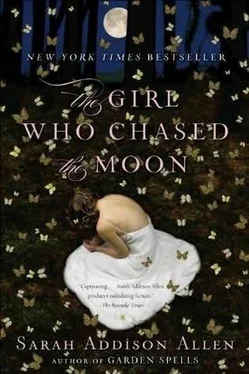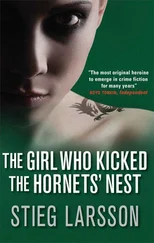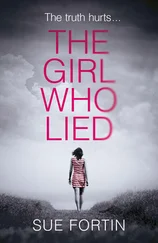“You knew her?” Emily asked, perking up at the thought of finding someone willing to talk about her mother.
“We were in the same class in school. But we weren’t close.” Julia stuffed her hands into her jeans pockets. “She didn’t tell you anything?”
“I knew she was born in North Carolina, but I didn’t know where. I didn’t even know I had a grandfather.” Julia’s eyebrows rose and Emily found herself rushing to explain. “She never said I didn’t have one, she just never talked about him and I always assumed it was because he had passed away. Mom didn’t like to talk about her past, and I respected that. She always said there was no use dwelling on the unfixable past when there was so much you could do to fix the future. She devoted all her time to her causes.”
“Her causes?”
“Amnesty International. Oxfam. Greenpeace. The Nature Conservancy. She traveled a lot when she was younger. After I was born, she settled down in Boston. She was very involved locally there.”
“Well. That’s… not what I expected.”
“Was she like that here? Was she involved in a lot of causes?”
Julia quickly took her hands out of her pockets. “I should be going.”
“Oh,” Emily said, confused. “Well, thank you for the cake.”
“No problem. My restaurant is called J’s Barbecue, on Main Street. Come by anytime for the best cake in Mullaby. The barbecue is really good, too, but I can’t take credit for it. That’s where your grandfather is right now, by the way. He walks there every morning for breakfast.”
Emily followed Julia to the front door. “Where is Main Street?”
As they stepped onto the porch, Julia pointed. “At the end of Shelby Road here, turn left onto Dogwood. About a half-mile later, turn right. You can’t miss it.” Julia started toward the steps, but Emily stopped her.
“Wait, Julia. I saw some sort of light in the backyard last night. Did you see it?”
Julia turned. “You’ve seen the Mullaby lights already?”
“What are the Mullaby lights?”
Julia scratched her head and tucked her hair behind her ears, as if deciding what to say. “They’re white lights that sometimes dart through the woods and fields around here. Some say it’s a ghost that haunts the town. It’s just another town oddity,” she said, as if there were many. “Don’t pay any attention to it and it will go away.”
Emily nodded.
Julia turned to leave again, but stopped with her back to Emily. She finally turned back around and said, “Listen, I’ll be next door if you ever need me, at least for the next six months. This place takes some getting used to. Believe me, I know.”
Emily smiled and she felt her shoulders lose some tension. “Thanks.”
IT DIDN’T take Emily long to decide to walk to Main Street and greet her grandfather. She thought it would be nice to walk home with him, establish some sort of routine. He’d obviously lived alone for a long time, so maybe his hesitancy around her came from simply not knowing how to act. Don’t wait for the world to change, Emily , her mother used to say to her, sometimes in a frustrated voice. Change it yourself!
Emily wondered if her mother had been disappointed in her. She didn’t have her mother’s passion, her courage, her drive. Emily was cautious, but her mother had never met a person she didn’t want to help. It had been an awkward dynamic. Emily had always been in awe of her mother, but it had been hard to get close to her. Dulcie had wanted to help, but never be helped.
She found Main Street easily. Just like Julia said, there really was no missing it. Once she turned the corner off Dogwood, there was an enormous sign declaring that she was now on “ Historic Main Street.” It was a long, beautiful street, different from the comfortable neighborhoods she’d walked through to get there. The street began with brick mansions in grand Federal style, sitting close to the sidewalk with almost no front yards to speak of. Across the street from the mansions was a park with a bandstand that had a lovely silver crescent-moon weathervane on top of it. Past the houses and the park, the street turned commercial, with a series of touristy shops and restaurants squeezed side by side into old brick buildings. Emily counted seven barbecue restaurants, and she was only halfway down the business end of street. Seven . They were obviously the source of the smell that settled over the town like a veil. Woody, sweet smoke was rising from behind some of the restaurants in wisps and curls.
There were a lot tourists around, mesmerized, as she was, by Mullaby’s old-fashioned beauty. The sidewalks were crowded, more crowded than she’d expected at that time of morning. She kept looking, but she couldn’t see J’s Barbecue and, out of nowhere, panic set in. One moment she was feeling happy and proactive, walking along this beautiful street, and the next moment she was terrified that she couldn’t find the restaurant she was looking for. What if Julia had been wrong? What if Grandpa Vance wasn’t here? What if she couldn’t find her way back?
She started to feel light-headed. It was like being underwater, this pressure against her eyes and ears, always followed by sparkling confetti swimming along her periphery.
She’d been having these anxiety attacks ever since her mother died. It was easy enough to hide them from Merry, her mother’s best friend, with whom Emily had lived for the past four months. All she had to do was close her bedroom door. And at school, her teachers would turn a blind eye when she stayed in the girls’ restroom, sitting on the floor by the sinks trying to catch her breath, instead of coming to class.
The business end of Main Street was lined with benches, so she made it to the nearest one and sat. She’d broken out into a cold sweat. She wouldn’t faint. She wouldn’t .
She leaned forward and rested her chest against her thighs, her head down. The length of the thighbone is indicative of overall height . It was a random thought, something she remembered from physiology class.
A pair of expensive men’s loafers suddenly appeared on the sidewalk in front of her.
She slowly looked up. It was a young man about her age, wearing a white summer linen suit, the jacket pushed away from his hips by his hands resting casually in his trouser pockets. He had on a red bow tie and his dark hair was curling around his starched collar. He was handsome in a well-bred kind of way, like something out of a Tennessee Williams play. She unexpectedly felt self-conscious in her shorts and racer-back tank top. Compared to him, she looked like she’d just come from a spin class.
He didn’t say anything to her at first, just stared at her. Then he finally, almost reluctantly, asked, “Are you all right?”
She didn’t understand. Everyone she’d met here so far treated her as if associating with her was going to hurt. She took a deep breath, the oxygen going to her head with the force of floodwater. “Fine, thanks,” she said.
“Are you sick?”
“Just light-headed.” She looked down at her feet, in ankle socks and cross-trainers, and seemed strangely detached from herself. Socks that only cover the ankle are not acceptable. Socks must be crew or knee socks only . So said the Roxley School for Girls handbook. She’d been at Roxley School all her school career. Her mother had helped found it, a school to empower girls, encouraging activism and volunteerism.
Silence. She looked up again and the young man was gone, like smoke. Had she been hallucinating? Maybe she’d conjured up some out-of-time Southern archetype to go along with her surroundings. After a few minutes, she put her elbows on her knees and lifted herself just slightly.
Читать дальше












